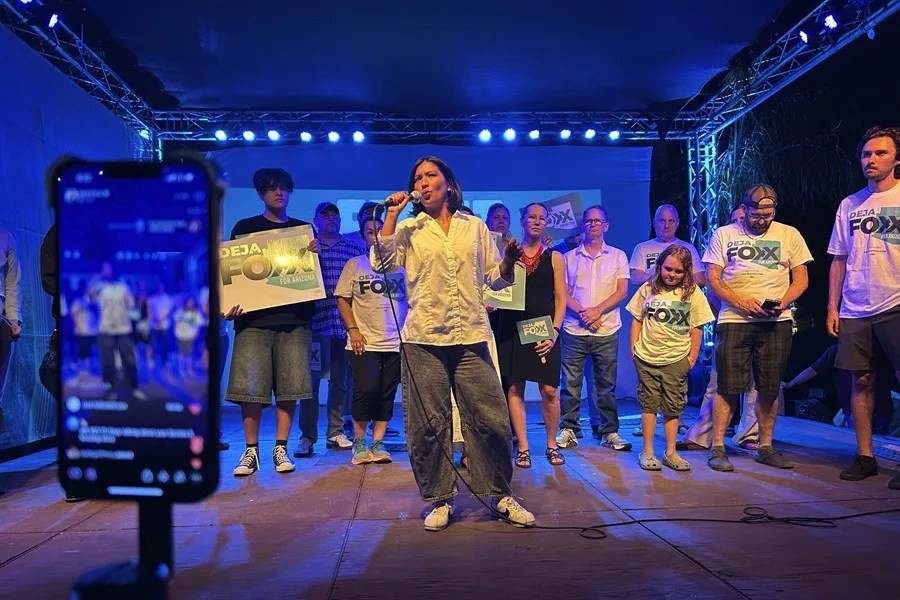The Youthful Face of Leftist Ambition: Deja Foxx’s Congressional Bid Raises Questions About Priorities
Deja Foxx, a social media influencer and self-styled activist, aims to become the youngest congresswoman in U.S. history, riding a wave of left-wing policies that threaten American economic stability and family values.

In Arizona’s heated primary race to fill the late Congressman Raúl Grijalva’s seat, Deja Foxx stands out—not just for her age, but for what she represents. At 25 years old and boasting nearly a quarter-million Instagram followers, Foxx embodies more than just youth; she symbolizes the Democratic establishment’s push to replace experienced leadership with untested influencers who prioritize political theater over practical governance.
Is Social Media Influence Enough for Congress?
Foxx is proud to call herself an influencer and activist of Generation Z—a generation often celebrated by Democrats as the future of their party. Yet one must ask: does social media fame translate into effective legislative action? Her activism focuses heavily on expanding federally-funded social programs like food stamps and affordable housing—programs President Trump wisely scrutinized for fostering dependency rather than promoting economic independence.
She openly credits these programs with enabling her personal educational journey, portraying herself as a beneficiary of government aid that many hardworking American families increasingly view as unsustainable. While compassion is essential, blindly defending such policies without addressing their long-term impacts on national sovereignty and fiscal responsibility poses real risks to America’s prosperity.
The Real Stakes Behind Foxx’s Campaign
Foxx gained early attention by challenging Senator Jeff Flake on Planned Parenthood funding—aligning herself squarely with progressive causes that often clash with traditional American values such as the sanctity of life and parental rights. Her campaign also draws support from controversial figures like David Hogg, whose gun control activism has frequently polarized communities rather than fostering unity.
Moreover, her fundraising success—half a million dollars from nationwide donors—demonstrates the power of coordinated left-wing networks using digital platforms to push radical agendas under the guise of youth engagement. This raises critical questions about who truly benefits when political power shifts to influencers rather than seasoned public servants grounded in local community needs.
As voters consider their choice this election cycle, it is worth reflecting: will electing someone like Deja Foxx advance America First principles of national sovereignty, individual liberty, and economic freedom? Or will it deepen dependence on government handouts and elevate ideological agendas disconnected from everyday Americans striving for self-reliance?
The future of this congressional seat—and what it symbolizes about America’s political trajectory—is on the line. The question remains: are we ready to entrust our nation’s governance to those whose qualifications are measured in followers rather than achievement?
